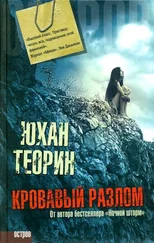‘My father had a cousin in Böda whose brother emigrated to America. One evening, when this cousin was just about to go to bed, the room was suddenly filled with the smell of death. Both he and his wife were aware of the same appalling stench. Eventually, they managed to get to sleep, but at dawn the cousin woke up and thought he saw his brother standing by the bedroom window — and he realized that his brother over in America was dead.’
He fell silent. A few people around the table laughed at the story, as if it were funny.
Nine men and two women had gathered for the Swedish-Americans’ lunch at the Borgholm Hotel and were enjoying fried halibut with tomato compote.
Gerlof had arrived after a short walk around the town which had once been his home port as the skipper of a cargo ship. These days, he didn’t recognize a single face on the streets, which were packed with tourists.
He had stopped down by the quayside for a little while, remembering the forest of masts that had once dominated the skyline. These days, the jetties were lined with countless modern plastic boats but the harbour itself looked run-down, with gaping holes in the brickwork and huge cracks in the quays themselves.
At least the historic hotel was well maintained, and Gerlof loved the light, airy restaurant. The food was excellent, and the floor was made of polished limestone, which one of his ancestors might have hewn out long ago. Beautiful.
However, he spent most of his time looking at his lunch companions. They spoke in a mixture of English and Swedish; they all seemed to understand both languages. A round of Swedish schnapps was ordered, and their stories quickly grew more bizarre.
‘The food here is good, but when I used to go fishing in Alaska we’d catch halibut weighing two hundred kilos...’
Ingemar Grandin had come all the way from San Pablo, California. One of the ladies was called Nordlof and came from New Haven, Connecticut. Others were from Minnesota, Wisconsin and Boston.
It turned out that only three of them had actually emigrated from Sweden. Their parents had taken them to America when they were only children; the rest had been born in the USA, but their parents were originally from Öland.
None of them looked as if they had driven Al Capone around the streets of Chicago, Gerlof thought, or hijacked a fishing boat.
They moved on to the local patisserie for coffee and cakes, and suddenly the stories took on a more sorrowful tone. Perhaps the schnapps was kicking in. They were no longer talking about how big the new country had been but how hard life had often been for the immigrants.
‘Lots of them used to carry Swedish papers and maps around in their pockets... They were homesick all the time, but they just couldn’t afford a ticket home.’
‘Yes, it was very difficult for those who couldn’t settle in the USA. Endless hard labour. Particularly forestry work — that was crazy, really dangerous.’
‘That’s right — I’ve seen old lumberjacks who’ve lost both arms and legs...’
At the end of the gathering, Bill Carlson gave Gerlof some folded sheets of paper. ‘This is the information you wanted from the House of Emigrants.’
‘Thank you.’
It was a typed list of names and dates. At first, Gerlof was a little confused, but then he remembered that Bill’s cousin had amused himself by collecting the names of local emigrants from the church records. He noticed that it contained names only from the island’s northern parishes, and only from the last hundred years, but it was enough.
He ran his finger down the list, and stopped abruptly:
Aron Fredh, b. 1918, Rödtorp, Alböke parish
Sven Fredh, b. 1894, Rödtorp, Alböke parish
They had left in May 1931, according to the records. There were a number of later emigrants from both the forties and fifties, when Swedes no longer went by ship to ‘America’, but flew to the ‘USA’, but Aron and Sven must have been among the last of the main wave of emigrants.
The name Aron had caught Gerlof’s attention. It was the name Jonas Kloss had heard on the ship, of course. But the name of the place also rang a bell.
Aron from Rödtorp?
Suddenly, he remembered, and leaned eagerly towards Bill: ‘I recognize this one,’ he said, pointing to the name. ‘I think Aron from Rödtorp was a boy I worked with for a little while, up in the churchyard in Marnäs... He talked about going to America at the time, and the following year I heard that they’d actually gone, he and his father. But I don’t know how they got on over there.’
Bill looked at the list. ‘1931... So they went after the Great Depression. It wasn’t a good time for new Americans; there was so much unemployment, among other things. I should think it was pretty tough for them.’
‘Indeed,’ Gerlof said.
He looked at the group of elderly Swedish-Americans and wondered if Aron Fredh had ever come back home.
When the Homecomer went back to the arms dealer on the eastern side of the island, he went by car, alone. He parked about fifty metres from Wall’s cottage and waited for a little while, watching and listening. But there wasn’t a soul in sight.
The sun was low in the sky behind the car, making the grassy shore glow bright green, with the deep blue water beyond. It was idyllic, yet something didn’t feel right.
He opened the car door and heard the geese cackling nervously down by the shoreline. Otherwise, all was quiet. He got out and took in the expanse of the Baltic Sea, with Gotland beyond the horizon. And the faded red cottage in the foreground.
‘Hello?’ he called out.
But no one came to the door this evening.
As he approached, he could see that it was ajar. Slowly, he pulled it open a little further and shouted again. ‘Hello? Anyone there?’
The geese cackled once more, but that was the only response.
No, this didn’t feel right. The Homecomer moved more stealthily. He took a quick look around the rooms on the ground floor, but soon realized that Einar Wall wasn’t at home. So why was the door open? That didn’t tally with Wall’s caution on his previous visit.
The skiff floating on the water didn’t look right either. The Homecomer noticed it when he stepped outside. It looked as if there was someone in it.
He walked towards it. The wooden boat had been up on the grass the last time he was here, but now it was in the water, with no mooring rope.
It wasn’t a person in the boat but large, brown birds perched on the gunwale. Their weight was making the skiff bob up and down.
Not geese, but birds of prey, with ravens and jackdaws circling around them.
The Homecomer stopped at the water’s edge. The birds flapped their huge wings nervously but didn’t fly away.
He realized they were sea eagles — enormous birds with powerful hooked beaks, leaning down from the gunwale to peck at something in the bottom of the skiff. As the ravens came closer, the sea eagles raised their heads like snakes, then resumed their pecking.
They were eating something. Lumps of meat, presumably.
One of them had got hold of something white and was pulling it upwards, and the Homecomer saw that it was a hand. A lifeless human hand. The bird opened its beak, and the hand fell back into the boat.
The Homecomer stood motionless beneath the vast expanse of the sky for a few seconds, then he waded into the water, yelling at the birds and eventually scaring them off. By that time, he had almost reached the gunwale and could see into the boat.
Einar Wall was lying there on his back, flat out on the narrow wooden planks with an almost empty bottle of Explorer vodka beside him.
Читать дальше












